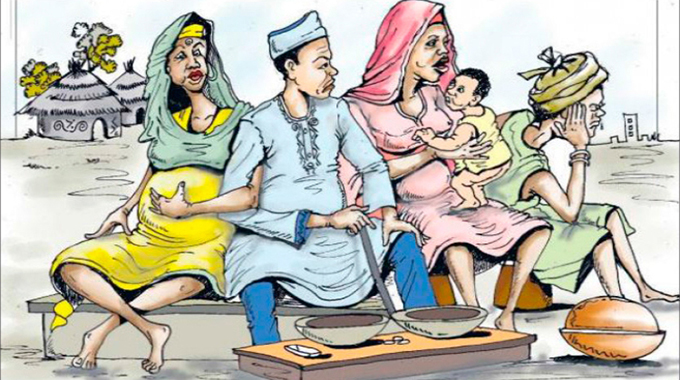The parcel that shook the village
In the village, stories of Rhodesia abound!
The kind of stories that conjure memories of oppression, memories of acts that undignified and dehumanised black people. The stories that have remained a rallying point behind the liberation struggle.
Stories that villagers remain emotional about.
This villager is a mere conveyor of the message. A mere conduit, nothing more, nothing less. This villager is simply gifted with the art of retelling the story, the art of a wordsmith so do not hate or hurt him.
Zimbabwe was way into its independence.
Kajokoto was one of the few villagers working at the farm across the Dande River. No one really envied him for walking from his home in the Chipuriro communal lands, formerly Sipolilo Tribal Trust Lands, early everyday.
Everyday, he left his home just before the crack of dawn. Fireflies became his friends in the dark. Frogs abhorred him for disturbing them for they always stopped their pre-dawn choreography in the river at the point he crossed every morning. They would resume their croaking as soon as he crossed. Starting afresh and singing in harmony again always proved difficult for the frogs.
This particular morning it was dark.
Pitch dark.
There was no moon.
Kajokoto used his experience to negotiate his way as the road agonisingly snaked to the farm, past stunted bush shrubbery. He moved like a shadow. Only dim stars witnessed his movement.
Fungai, his wife of six years, had become used to his coming home after sunset and waking up in the wee hours, the time when elephants bathed. The villagers called it mashambanzou. Kajokoto was a farm guard. Very trusted by the Bhasa, the colloquial lingo for boss, he was promoted from field guard to the main entrance to the farm complex.
There, the farmer kept his fleet of cars, his tractors and his everything. Bhasa’s house was within the complex.
Kajokoto also benefited from the left-overs in terms of lunch break and clothes. Misisi, the Bhasa’s wife, also liked Kajokoto. On a good day, Kajokoto carried home goodies for his wife and family.
The other black workers hated Kajokoto. In their eyes, he was a sell-out. He sold them out more often that not, for coming late, for stealing and cheating.
Bhasa Johns was a gifted mechanic. He worked for Engineering Corps in the Second World War on behalf of the Queen of England. He had operated in the Bahamas and the farm was his gift from the queen for his heroic antics in that war. While repairing or maintaining equipment in the workshop, he always talked about that war. He also bragged about Zimbabwe’s new rulers being focused on political power and not economic empowerment.
His famous statement was: “If we had known that the black nationalists wanted political power only, we would not have fought them. I would not have killed the many gandangas (freedom fighters) during your war. We would have given them power without losing a drop of blood.” No day passed without Bhasa Johns saying this.
In the workshop Bhasa had three spanner boys. Although he called them spanner boys, they were real men with families. It is from this attitude that black men would always be called boys (mabhoyi), even when their hair turned grey, above and below.
At lunch, Bhasa let them go to their huts in the compound, while he went to his own. More often that not, the men did not have anything to eat home for their wives and children would be working in the Bhasa’s fields. There was nothing to go home for. So, the men would just choose a corner in the workshop and sleep, the entire lunch.
Bhasa did not trust them.
He ordered Kajokoto to watch them, lest they stole his spanners or equipment. Kajokoto was a ‘good African’. He followed instructions without question. Bhasa always instructed Misisi to give Kajokoto left-overs. He enjoyed that while his fellow blacks worked on dry throats and empty stomachs.
One hot afternoon, Bhasa came back from lunch to find one of the spanner boys, Banda, sleeping and snoring. His mouth was agape, yawning like a football pitch gate without a goalkeeper. Bhasa unzipped and urinated in Banda’s mouth. Shocked, Banda woke up to find Kajokoto and Bhasa laughing at him. He sprang to his feet, ran to the tap and rinsed his mouth. Kajokoto laughed along with Bhasa. “This is not your bedroom!” Bhasa shouted.
The following morning Banda reported to the police station and Bhasa Johns was summoned. He was, however, freed after Kajokoto testified that Banda was lying and cooking up a story for Bhasa Johns. The other two spanner boys, Sunwet and Elisha, were not treated as credible witnesses because they said they had gone to their homes for lunch, when the incident occurred.
Banda got fired and went on looking for jobs at farms in Mvurwi, where he thought white farmers there did not know about his case.
From that day Kajokoto became the best African at the farm.
His parcels increased.
His gifts increased and his treatenment improved. The gifts rained on him so much that he would take them home for his wife to open. His wife was getting used to a tapestry of European food. Misisi even invited Kajokoto’s wife to her house and there she was given second hand clothes from Misisi’s wardrobe. She was a loud mouth and she told the village about her closeness to Misisi. The gifts! Naturally, there were other villagers who got jealousy. Others kept their distance but kept their ears to the ground. Do village elders not say walls have ears?
Then the land reform programme inevitably came.
More parcels continued pouring. Fungai had gained more friends among the village women. Others made it a habit to visit her as soon as Kajokoto arrived home from work. They would meet the gifts. They would see Fungai open the gifts. The village was awash with gossip.
Many married men literary slept on the floor after being chased off the beds by their wives for refusing to go and work for Bhasa Johns and bring home the gifts. “What do you lose if you become a good African? Do we feed on your revolutionary principles? Do we feed on your patriotism? Put your black liberation principles on the table for us to eat.
Go and work for Bhasa like Kajokoto!
“Do you think manhood is having the biggest bamboo stick between your legs? Go and work!” one woman went on to humiliate her husband who had vowed never to work for Bhasa Johns.
The Third Chimurenga gathered momentum. War veterans and selected village men arranged to take over Bhasa John’s farm. One morning they got to the entrance where Kajokoto guarded. They tricked him into allowing them to enter and talk to Bhasa Johns. Kajokoto reluctantly allowed them in. That was his mistake!
All hell broke loose. Bhasi Johns went mad. Threatening to shoot the “intruders” if they spent another minute on his “private property”. He had worked for this farm in the Second World War. He had defended this farm in Rhodesia. If he had not killed many gandangas in tribal trust land raids, he would have been killed by them. He went on and on.
The men retreated but assured him they would come back. An irked Bhasa Johns went after Kajokoto. How the hell did he allow these evil people to enter his complex? How dare he do that? Once an African always and African.
Late in the afternoon, a seemingly conciliatory Bhasa Johns brought a well-wrapped parcel for Kajokoto. “This one is for and your wife. You can open it at home. My wife prepared it for you. You can knock off early today.” Surprised by the conciliatory mood Kajokoto took home the parcel.
As usual his wife’s friends came to see. Fungai, his wife, trembled to open the big parcel. There were several layers of wrapping paper. Layer after layer she peeled off. Paper foil after paper foil, she removed then, lo and behold! Human faeces.
Fetid! Fetid, fetid, fetid!
“That is what you deserve. There is no place for people like you at my farm. You organised with your relatives to steal my farm. Never set foot on my property again or I will shoot you! You village idiot. You are like that parcel. Shit!” read the attached note.
The parcel shook the village. Fetid.
When the farm was eventually acquired under the land reform, Kajokoto, was blocked by other villagers from getting a plot. To this today, Kajokoto is laughing stock, he is the butt of village jokes.
Other ‘good’ Africans should remember that Bhasa has no permanent friends, just permanent interests.







Comments